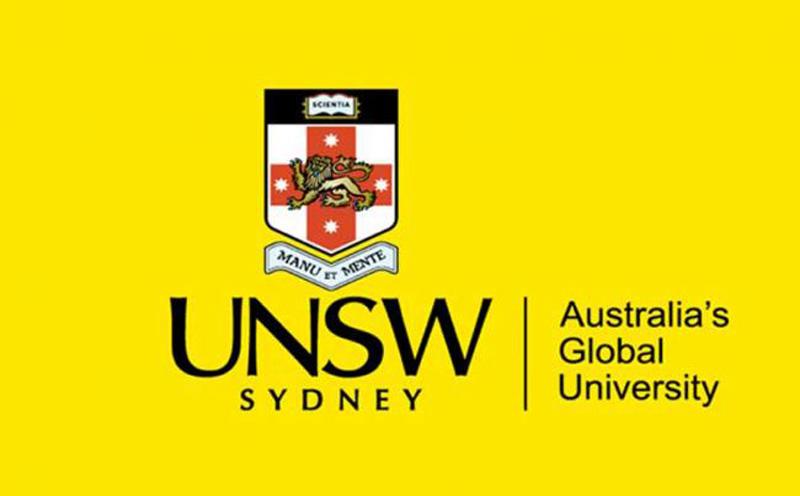 Image
Image
New method to detect early cancer using malaria protein from UNSW, Sydney
Sydney, Aug 28 (IBNS): Researchers have come up with a new method to detect cancer in its early stages by way of a malaria protein that sticks to cancer tumour cells in the blood.
Researchers from UNSW Sydney and the University of Copenhagen said the method can be used as a more effective way to screen for cancer.
UNSW Professor Chris Heeschen said the hope is that this method, in which malaria protein VAR2CSA sticks to cancer cells, can be used as a more effective way to screen for cancer in the near future.
“We have developed a method where we take a blood sample and with great sensitivity and specificity, we’re able to retrieve the individual cancer cells from the blood,” UNSW Professor Chris Heeschen said.
“We catch the cancer cells in greater numbers than existing methods, which offers the opportunity to detect cancer earlier and thus improve outcome for patients.”
According to the research, the new method can be used more broadly to diagnose cancer as it is not limited by cancer type. It also means all that is needed for a cancer diagnosis is a blood sample.
Each year, cancer kills approximately nine million people worldwide, and early diagnosis is crucial to efficient treatment and survival.
Professor Heeschen said the new technique could be available in the market within two years if a biodiagnostic company were to take it on.
Previous methods to detect cancer in blood relied on detecting a particular marker found on the surface of tumour cells. However, not all tumour cells display this marker, which renders these methods unable to detect tumour cells spread to other organs such as the liver, lungs and bones.
The method based on the malaria protein does not discriminate between cancer types, and can detect all carcinoma cancers, accounting for 95 per cent of cancers detected in humans.
During the development of the new method, the researchers took 10 cancer cells and added them to five millilitres of blood containing millions of red and white blood cells. Magnetic beads coated with the malaria protein were then added to the samples.
The beads stick to the cancer cells only and can then be retrieved with a robotic machine that uses a strong magnet. This way, they were able to retrieve nine out of the 10 cancer cells which had adhered to malaria protein.
Professor Heeschen said this was a definitive result.
Our method has enabled us to detect cancer at any stages – one, two, three and four,” Professor Heeschen said.
“Based on the number and character of circulating tumour cells we find in someone’s blood, we’ll be able to determine whether it’s a relatively aggressive cancer or not so can then adjust the treatment accordingly.”
The latest research follows on from work done by researchers led by University of Copenhagen’s Professor Ali Salanti, who discovered in 2015 a new method of treating cancer with the protein VAR2CSA produced by malaria parasites.
The findings of Professor Heeschen and his team were published recently in Nature Communications as “The VAR2CSA malaria protein efficiently retrieves circulating tumor cells in an EpCAM-independent manner”.
UNSW, Australia’s global university ranked among the top 50 Universities in the world offers programs in engineering, business, law, architecture, art and design, medicine and science.
Located in Sydney, a safe and student friendly city, UNSW is home to more than 52,000 students from nearly 130 countries. The new Australian PM-to-be Scott Morrison is UNSW alumnus. UNSW has been attracting a growing number of bright Indian students for Undergraduate and Post Graduate studies. The highest demand for PG students is engineering, within engineering, the highest demand is Information technology and Computer sciences. The second subject area of high demand is the school of business and the third area is the built environment or architecture. The other areas of interest are law, art and design.
Since 2017, the UNSW has noticed a very strong and growing interest in the undergraduate area. Many students, straight out of school are going abroad for higher education.
As one of the world's leading research and teaching universities, UNSW's cutting edge research and innovation - facilitated by 3,000 faculty - is known for acceptance and successful commercialisation.
Top Headlines
-
Health
Akhil Bharat Jaiguru Sampradaya and Omkarnath Mission volunteers care for terminally ill patients at Mahamilan Math hospice
November 05, 2025
-
Health
Ayurveda and Skin Health in the Modern Age
October 09, 2025
-
Health
MedSage expands footprint with new branch in Rampurhat
October 04, 2025
-
Health
Vijaya Diagnostic Centre inaugurates State-of-the-Art Centre featuring first advanced 3 Tesla MRI in Kolkata
September 11, 2025
-
Health
Ayurveda and the urban woman: Practical science for a healthier, calmer life
September 07, 2025
-
Health
Rotary Club of Belur strengthens Kolkata healthcare with donation to Ramkrishna Mission Seva Pratishthan
August 25, 2025
-
Health
Parampara Ayurveda founder Dr. Debabrata Sen shares wellness strategies for desk-bound professionals
August 08, 2025
-
Health
Kolkata: Mega health camp transforms lives in Ultadanga slum with free multi-specialty services
August 02, 2025
-
Health
Mass awareness of Ayurvedic medicines is needed: Parampara Ayurved founder Debabrata Sen
May 26, 2025
-
Health
Vijaya Diagnostic Centre inaugurates State-of-the-Art Centre featuring 3 Tesla MRI and 80-Slice CT in Bengal
May 22, 2025
